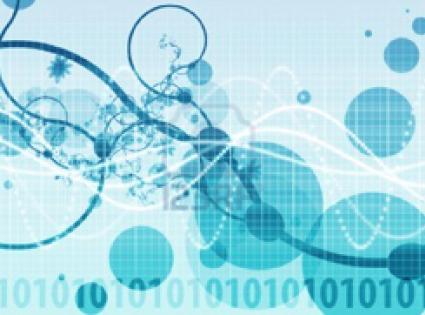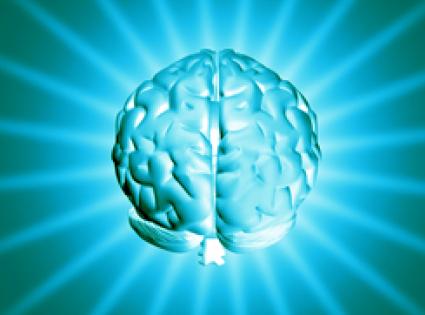PARTICIPACIÓN EN PROYECTOS DE INVESTIGACIÓN:
Participación, desde 1994 hasta 1995, en el Proyecto de Investigación “Ontosemántica de las Expresiones Científicas”, con referencia XUGA20506B94, concedido por la Xunta de Galicia al Departamento de Lógica y Filosofía de la Ciencia de la Universidad de Santiago de Compostela y cuyo investigador principal fue el profesor Juan Vázquez Sánchez.
Participación en el Proyecto de Investigación “Cambio de teorías: variación semántica y relaciones interteóricas”, con referencia PB98-0495-C08-04 concedido por el Ministerio de Educación y Cultura al Departamento de Lógica y Filosofía de la Ciencia de la Universidad de Santiago de Compostela por el período 30/12/1999-30/12/2002, siendo el investigador principal el profesor José Luis Falguera López.
Participación en el Proyecto de Investigación “La justificación del conocimiento en las ciencias formales y empíricas”, con referencia HUM2006-04955/FISO. Ministerio de Educación, para la Universidad de Santiago de Compostela, desde finales 2006/principios 2007 hasta finales 2009/principios 2010. Investigador responsable: Juan Vázquez Sánchez.
Participación en el Proyecto de Investigación “Lenguaje y pensamiento: dependencia contextual”, con referencia: FFI2008-06421-CO2-02/FISO. Ministerio de Ciencia e Innovación, para la Universidad de Valladolid, desde 2008 hasta 2010. Investigador responsable: Agustín Vicente Benito.
Participación en el proyecto de investigación: "Cognitive Attitudes and the Justification of Knowledge" (Actitudes cognitivas y la justificación del conocimiento), Ministerio de Ciencia e Innovación, para las Universidades: Santiago de Compostela, Complutense, de Porto, King's College. Desde 2009 hasta 2012. Investigador responsable: Concepción Martínez Vidal.
Participación en el proyecto de investigación: “La pragmática como dinamizadora del estudio de la flexibilidad semántica: contextos conversacionales y contextos teóricos” (FFI2012-33881), Ministerio de Economía y Competitividad, desde 2013 hasta 2016, investigadora principal: María de la Concepción Caamaño Alegre
- “Modelos y teorías en ciencias físicas, biológicas y sociales” (PICT-2014-1741). Entidad financiadora: ANPCyT, Argentina. Entidades participantes: Universidad de Quilmes, Universidad de La Plata, Universidad de Santiago de Compostela, Universidad de Barcelona, Universidad de Munich, Universidad de Valladolid. Duración: desde 2016 hasta 2019. Investigador principal: Pablo Lorenzano.
- “Stochastic Representations in the Natural Sciences: Conceptual Foundations and Applications (STOCREP)” (Representaciones estocásticas en las ciencias naturales: fundamentos conceptuales y aplicaciones), PGC2018-099423-B-I00. Entidad financiadora: Ministerio Español de Ciencia, Innovación y Universidades. Duración: desde 2019 hasta 2022. Investigador principal: Mauricio Suárez Aller.
- “Laws and Models in Physical, Chemical, Biological, and Social Sciences” (Leyes y modelos en las ciencias físicas, químicas, biológicas y sociales), PICT-2018-03454. Entidad financiadora: ANPCyT, Argentina. Duración: desde 2019 hasta 2022. Investigador principal: Pablo Lorenzano.
ESTANCIAS DE INVESTIGACIÓN
Becaria del Programa I.S.E.P. (International Student Exchange Program), en Lawrence, Kansas (Estados Unidos), del 20-8-1998 al 30-8-1999. Estudios de doctorado en la University of Kansas.
Becaria F.P.I., modalidad F.P.U. en estancia breve (del 28-6-2002 al 31-7-2002) en Munich (Alemania) con objeto de discutir varios capítulos del trabajo de tesis con el profesor Ulises Moulines.
Becaria Post-doctoral Fulbright, Stanford University (del 01-03-2006 al 01-08-2007).
Participación, como comunicante, en el Congreso Valores, racionalidad y actividad científica que tuvo lugar en San Sebastián los días 27, 28 y 29 de Septiembre de 1999. La comunicación presentada en dicho congreso llevó por título “El caso del flogisto analizado desde la perspectiva del último Kuhn. Alcance de la crítica de Kitcher a dicho análisis”.
Participación, como ponente, en el III Congreso de la Sociedad de Lógica, Metodología y Filosofía de la Ciencia en España (San Sebastián, del 26-4-2000 al 29-4-2000). El título de la ponencia presentada fue “Aclaraciones básicas en torno a la idea de esquema conceptual”.
Participación, como ponente, en el I Congreso Iberoamericano de Filosofía de la Ciencia y de la Tecnología que se celebra en Morelia (México, del 25-9-2000 al 29-9-2000). Allí presenta la ponencia “Una idea aceptable de esquema conceptual”.
Participación, como ponente, en la sesión del Coloquio Compostelano de Filosofía Analítica celebrada el 21/9/01 en la Facultad de Filosofía de la Universidad de Santiago exponiendo el trabajo titulado “Inconmensurabilidad versus Inconsistencia”.
Participación, como organizadora y ponente, en el congreso Teorías formales y teorías empíricas (Santiago de Compostela, del 14-11-2001 al 16-11-2001). Contribución consistente en el trabajo “Inconmensurabilidad versus Inconsistencia”.
Participación, como ponente, en el seminario Controversias científicas, celebrado en Barcelona del 5-6-2002 al 7-6-2002, presentando la comunicación que llevó por título “Cambios referenciales de las expresiones científicas”.
Participación, como ponente, en las I Jornadas Hispano-Portuguesas de Filosofía Analítica, (Santiago de Compostela, del 20-11-2002 al 22-11-2002). La comunicación presentada llevó por título “Cambios referenciales de los términos de clase natural en el contexto científico”.
Participación, como ponente, en las Jornadas sobre K. Popper: Revisión de su legado, celebradas en Ferrol del 13-3-2003 al 14-3-2003. La comunicación se presentó bajo el título “Popper y Kuhn: Resultados de la polémica”.
Participación, como asistente, a las II Jornadas sobre Pragmatismo, que tuvieron lugar en Santiago de Compostela del 13 al 14 de mayo de 2004.
Participación, como ponente, en el IV Congreso de la Sociedad de Lógica, Metodología y Filosofía de la Ciencia en España, celebrado en Valladolid del 3 al 6 de noviembre de 2004. La comunicación presentada llevó por título "Diferencias entre las nociones de traducción e interpretación".
Participación, como ponente, en el II Congreso de la Sociedad Académica de Filosofía, celebrado en Santiago de Compostela del 10 al 12 de febrero de 2005. La comunicación presentada llevó por título "Interpretar sin traducir".
Participación, como ponente, en el congreso anual de la CSPA (Central States Philosophical Association), (Memphis, del 13-11-2006 al 14-11-2006). Contribución consistente en la ponencia “Aristotle’s Argument for the Spherical Shape of the Earth. A Pragmatic Interpretation of its Importance”.
Participación, como ponente, en el First Lisbon Colloquium for the Philosophy of Science. The Unity of Science: Non-Traditional Approaches
(Lisboa, del 25-11-2006 al 28-11-2006). La ponencia presentada llevó por título “Pragmatic Continuities in Empirical Science. Some examples from the history of Astronomy”.
Participación, como ponente, en el 13th Internacional Conference of Logic, Methodology, and Philosophy of Science (Pekín, del 9 al 15 de agosto de 2007), presentando el trabajo “Experimental Validity and Pragmatic Modes in Empirical Science”.
Participación, como ponente, en el IV Meeting on Pragmatism: Truth and the Ethics of Belief (Murcia, del 2 al 4 de junio de 2008), con el trabajo “Changing the Pragmatist Focus from Truth to Validity”.
Participación, como ponente, en el VIII Coloquio Compostelano de Lógica y Filosofía Analítica. La Justificación del Conocimiento en las Ciencias Formales y Empíricas (Santiago de Compostela, del 25 al 26 de junio de 2008), presentando el trabajo “Sustitución de la verdad por la validez en la agenda pragmatista”.
Participación, como ponente invitado, en el VI Encuentro Iberoamericano de Metateoría Estructuralista (Auxerre (Francia), del 20 al 23 de agosto de 2008), con el trabajo “Análisis estructural del caso del flogisto”.
Participación como ponente en Pragmatism & Science Conference (Amherst (NY, Estados Unidos), del 19 al 20 de junio de 2009), presentando el trabajo "Pragmatic Norms in Science: Making them Explicit".
Participación, como ponente invitado, en el International Workshop: Pragmatism from Giovanni Vailati to Contemporary Epistemology (Bolonia (Italia), de 12 al 13 de 2009, con el trabajo: "Reflections on Vailati's Pragmatism".
Participación, como ponente, en el “VI Congreso de la Sociedad de Lógica, Metodología y Filosofía de la Ciencia en España” (Valencia, del 18 al 21 de noviembre de 2009) con el trabajo “Algunos problemas en torno a la evaluación del éxito teórico”, pp. 299-303.
Participación, como ponente invitado, en el “VII Encuentro Iberoamericano de Metateoría Estructuralista” (Santiago de Compostela, del 13 al 15 de septiembre de 2010), con el trabajo “Key Structural Aspects of Theory Appraisal”.
Participación, como ponente, en el “Truth, Knowledge, and Science: 9th National Conference of the Italian Society for Analytic Philosophy (SIFA)” (Padua, 23-25 de septiembre de 2010), presentando la ponencia: “Assessing Truth as a Scientific Goal”.
Participación, como ponente, en el 14th Conference in Logic, Methodology and Philosophy of Science (Nancy, Francia, 20-26 de julio de 2011), con la contribución “Theory Success: Some Evaluative Clues”.
Participación, como ponente junto a José Caamaño Alegre, en el IX Internacional Network of Economic Methodology Conference (Helsinki, Finlandia, 1-3 de septiembre de 2011), presentando el trabajo “Enlarged Empirical Economics and the Quest for Validity”.
Participación, como ponente, en el VII Congreso de la Sociedad de Lógica, Metodología y Filosofía de la Ciencia en España (Santiago de Compostela, 18-20 julio de 2012), con la ponencia “Las anomalías no refutatorias y el alcance del dominio teórico”.
Participación, como ponente invitado, en el VIII Encuentro Iberoamericano sobre Metateoría Estructuralista (México DF, 23-25 octubre de 2012), presentando la contribución “La ampliación del alcance teórico: el papel de las anomalías no refutatorias en la revolución geológica”.
Participación como ponente invitada en el Seminario Sobre Realismo Científico del Departamento Lógica y Filosofía de la Ciencia de la Universidad de Salamanca (20-05-2013), presentando el trabajo: “Disparidad ontológica e inconmensurabilidad”.
Participación como comentarista invitada en la II Conferencia de Graduados de la SLMFCE (Sevilla, 12 de junio de 2013), comentando el trabajo de Alba Amilburu: “Natural Kind Thinking in Philosophy of Science: Naturalised Kinds or Naturalising Kinds?”
Participación como comentarista invitada en el IX Encuentro Iberoamericano sobre Metateoría Estructuralista (Barcelona, 14-17 de julio de 2014), comentando la contribución de M. Aimino y A. Gonzalo “Apuntes para una reconstrucción estructuralista de la teoría de la deriva continental de Alfred Wegener, considerada en el marco del debate de la geología de la primera mitad del siglo XX”.
Participación como ponente invitada en las XX Jornadas de Filosofía y Metodología Actual de la Ciencia. Jornadas sobre Enfoques del Método Científico: Pluralismo versus Reduccionismo (Ferrol, 12-13 de marzo de 2015), presentando la ponencia: “Challenges to Validity from the Standpoint of Methodological Pluralism”.
Participación como ponente en el VIII Congreso de la Sociedad de Lógica, Metodología y Filosofía de la Ciencia en España (Barcelona, 7-10 de junio de 2015), con una ponencia titulada: “Avances y dificultades en el control de los efectos marco”.
- “Construct Validity in Experimental Economics: a Neglected Side of the Duhem-Quine Problem”, ponencia presentada conjuntamente con José Caamaño Alegre en el congreso internacional 27th Annual Conference of the European Association for Evolutionary Political Economy (Genova, 17-19 de septiembre de 2015).
- Comentarista invitada del trabajo “Entrenching the Epistemological Side of Computer Simulations: Explanation and Unification”, presentada en el III Congreso de Graduados del Área de Lógica y Filosofía de la Ciencia (Valencia, 1-2 de junio de 2016)
- “The Role of Presuppositions in Framing Effects”, ponencia presentada en el congreso internacional 1st Context, Cognition and Communication Conference (Varsovia, 15-18 de junio de 2016).
- “The Semantics of the Revolution in Geology”, ponencia presentada en el congreso internacional The Semantics of Theories (Munich, 23-25 de junio de 2016).
- “La estructura de las revoluciones kuhnianas”, ponencia presentada en el IV Congreso Iberoamericano de Filosofía de la Ciencia y de la Tecnología, dentro del Simposio: El programa estructuralista: a treinta años de la publicación de An Architectonic for Science (Salamanca, 3-7de julio de 2017).
- “La problemática de la transversalidad metodológica en ciencias naturales y sociales”, ponencia invitada en el IV Congreso Iberoamericano de Filosofía de la Ciencia y de la Tecnología, dentro de la Mesa Redonda: Panorama actual de la Filosofía de la Ciencia (Salamanca, 3-7de julio de 2017).
- “The Semantic-Pragmatic Side of Framing Effects”, ponencia presentada en el congreso internacional European Philosophy of Science Association Conference (EPSA17) (Exeter, 6-9 de septiembre de 2017).
- “Experimental Economics from the Vantage Point of the Cambridge Social Ontology: Building on Siakantaris’ Insights”, ponencia presentada conjuntamente con José Caamaño Alegre en el congreso internacional 30th Annual Conference of the European Association for Evolutionary Political Economy (Niza, 5-8 de septiembre de 2018).
- “Pseudoscience within Science? The Case of Economics”, ponencia presentada en el congreso internacional 16th International Congress on Logic, Methodology and Philosophy of Science and Technology (CLMPST 2019) (Praga, 5-10 de Agosto de 2019).







